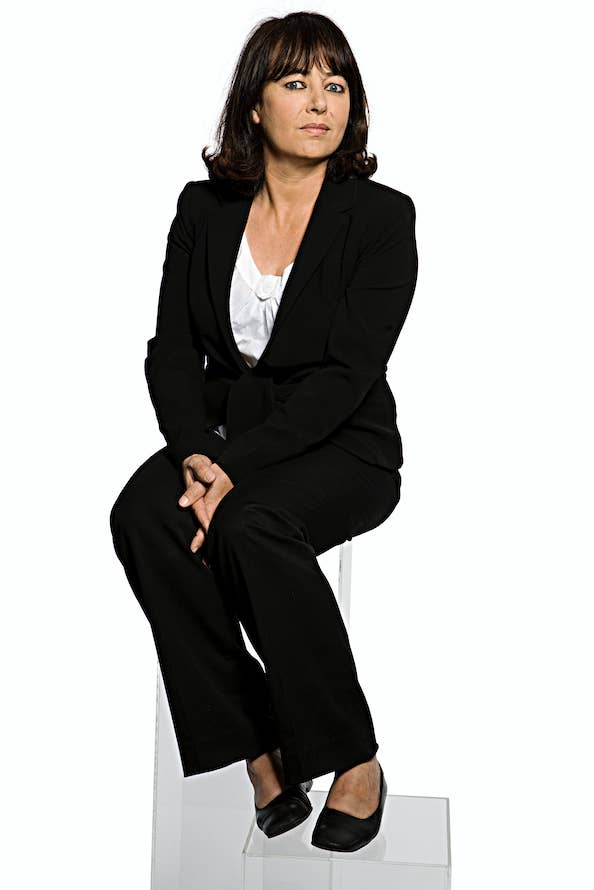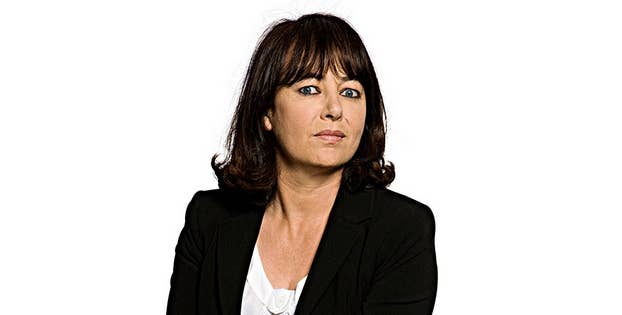"At Ubisoft you always have a second chance"
Ubisoft's Christine Burgess-Quémard on how the company maintains its unique culture with 15,000 employees
If you want a clear example of why a culturally diverse team can be hugely successful, just look at Ubisoft.
Those of us with long memories will recall a time when Ubisoft was a distinctly French company making distinctly French games. A company that was popular in its home market, but struggling for traction worldwide.
"You may remember... Infogrames was a great company making great games. Ubisoft was, too, but these games had a French touch, and when you have a French touch, you're not necessarily a success in America or England," explains Christine Burgess-Quémard, executive director for Ubisoft's Worldwide Studios.

"It helped us to maybe keep some of our French touches, but to give our games more of an international feel, which is what we needed to do to be successful in the industry. If we stayed like that French company, then I think it would be very difficult. When we opened up in Montreal, we suddenly developed a North American feeling and a North American touch, and we became successful in North America as well."
GamesIndustry.biz is talking to Ubisoft around GDC about the company's efforts to retain its unique culture, despite adding 2,000 employees to its roster in the past financial year alone.
Diversity is part of what makes Ubisoft different, the firm believes. This experience -- from being a big company in France, to a company with an audience in other Western nations -- is why it continually opens new studios in other countries, including Eastern Europe, China and India.
Yet there are challenges that come with doing this, too. These territories have significant cultural differences. They might not be as open or experienced as the talent available in Canada or in Western Europe, for instance, and perhaps not as open to Ubisoft's philosophy, either. Burgess-Quémard says this gets to the heart of Ubisoft's unique development structure.
"We are a Western company, and we have this Western culture and an openness to new things and new arts and so on," she explains. "But many years ago we decided we wanted to go into other territories and grow in places that aren't just in the Western world.
"One of the first studios we opened up was in Bucharest in Romania... 30 years ago, going into Romania was a real challenge"
"We went into China, for instance. One of the first studios we opened up was in Bucharest in Romania. That was almost 30 years ago; 30 years ago, going into Romania was a real challenge. We realised very quickly that it was not easy for some studios to bring in developers who are able to be creative just like that. We knew it was going to take a lot of time.
"One way to help these people to grow, and make sure that they're sharing the same creativity, was to make them work with other studios. That is when we started to build the system of lead studios and associate studios. We can have a large team in Montreal, for example, but they work with a studio in Bucharest or Sofia or Singapore. It's a great way for these people to learn. You learn by doing and by sharing.
"The lead studios need the associate, and the associate needs the lead. It's a win-win situation. Because even if you're a big studio with lots of teams, like Montreal... Montreal could not do as many projects a year on its own. It needs the help of the people. It is a great way to build things."
Burgess-Quémard is one of several senior managers at Ubisoft who has been with the publisher since the very start. She began working with games distribution business Guillemot International, which was operated by two of the Guillemot brothers. When Yves Guillemot decided to start up Ubisoft, he asked his brothers to release Burgess-Quémard, and they obliged. She was Ubisoft's fifth employee. It now boasts more than 15,000.

Despite the scale of Ubisoft's operation, it has never really felt like a corporate goliath. In fact, the company likes to describe itself as an independent. It's why it was so vehement in its rejection of Vivendi and (before that) EA's efforts to acquire the company. Burgess-Quémard tells us that Ubisoft simply wouldn't work as part of a larger corporate entity.
"We are not a company that is handled by financials," she argues. "We don't base everything on financials. We put the human in the centre of our company. This is the video game industry, we don't have machines like other industries have. Our power and our wealth is in people's creativity. It is their brains. What makes our success is the people's motivation and creativity. We build studios for the long-run."
These new studios are all built with the Ubisoft philosophy in mind. It's about empowering the managers to be entrepreneurs and to take risks, Burgess-Quémard explains.
"We don't cut people's heads if they make a mistake first time. We would give them a second chance"
"Each project is now so big, it's a company in of itself. When I started with Yves 33 years ago, the projects were so small. We had five people on Zombi. Of course now, when you have 900 people and over on one project, we are looking at a completely different scale. But the spirit is pretty much the same. We want people to win, so we make sure they lead their teams to success as well."
To allow its teams to win, Ubisoft does invest in them, and if sometimes things don't work out -- such as with Ubisoft's recent efforts in VR, for instance -- it makes sure not to punish the creators. After all, that's hardly going to encourage the risk-taking of which the company is so proud.
"It's not so much that we say don't worry if you get it wrong; because of the budgets involved, we don't want people to get it wrong because the risk is so high," Burgess-Quémard admits. "But we have a saying: at Ubisoft you always have a second chance. We don't cut people's heads [off] if they make a mistake first time. We would give them a second chance.
"But what is rewarded, obviously, is the success. When you have a successful project, you will have all these people behind you who will feel the success as well, and share the success. That's why we also have incentive programmes, to make sure that people feel really part of the project."
It's not all about financial rewards, of course. Over the years we've written about Ubisoft's efforts to avoid team fatigue if they've been working on a single project or franchise for so long. Enabling its creators, if it can, to try new projects, work on different things, and even to develop indie-style games.
"it's not difficult to reach the top. It's staying there that is difficult"
Like most studios, Ubisoft invests in the team's education, too. It runs UDC -- the Ubisoft Developer Conference -- which is in its tenth year in 2019, plus a series of other specialists courses. That's all pretty normal stuff for a large business, but one of Ubisoft's more surprising education initiatives is in sending its teams around the world so they can learn about different cultures and make their games as realistic as possible. The Far Cry team, for instance, spent three weeks in Montana to get a feel for the place they were re-creating.
"Each new world that we are creating, we make sure that the team is exposed to it. We don't do too much science fiction, because we are not sending people to the Moon, or to Mars... yet... Maybe it will happen sooner than you think. Maybe we should work with Richard Branson."
Burgess-Quémard is only half joking. Ubisoft's culture may not have changed as drastically as you might expect after growing from five to 15,000, but it has changed. It used to make distinctly French games, and now it builds international projects made by teams in every continent. It's adding new voices and new ideas through new studios in new territories. It's investing in new consoles and technology. It was a Ubisoft game that was front and centre at the Google Stadia reveal at GDC, for example.
Of course, as any gamer will tell you, Ubisoft isn't perfect. It makes mistakes and gets things wrong, and does so frequently. But it is always trying. Perhaps that's what makes Ubisoft feel so different.
"A lot of companies have disappeared from the industry because maybe sometimes you think you're the best, and that you've reached the top," concludes Burgess-Quémard. "But it's not difficult to reach the top. It's staying there that is difficult.
"If you're not humble enough to try and see what is coming next, and to realise that just because you've had one success, you're not necessarily going to be successful forever... We never think we have made it. We know we need to keep progressing over time. The key is not to take things for granted."

